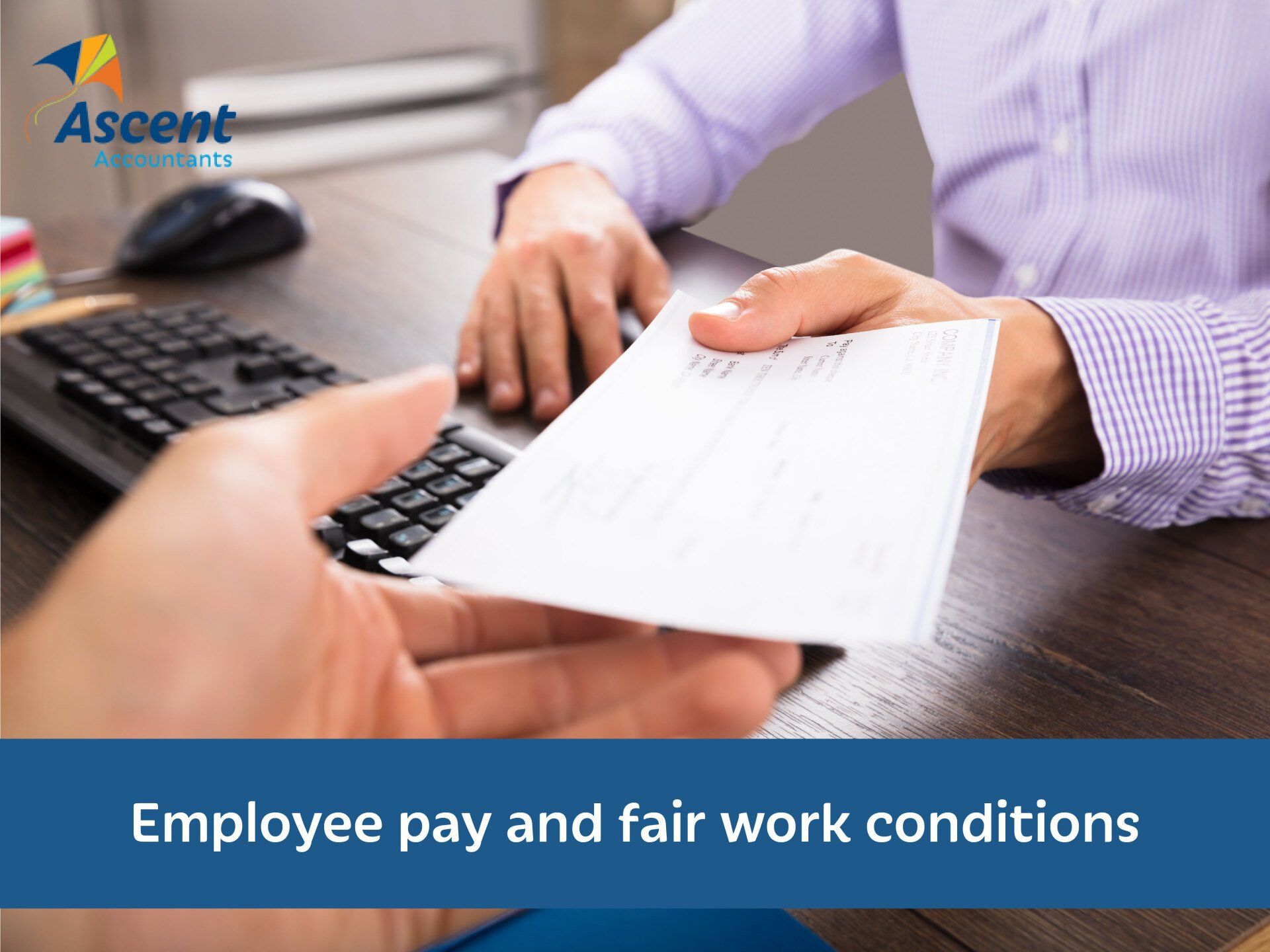Employee pay and fair work conditions

In Australia, we’re lucky enough to have a work system that prioritises human rights, fair pay, and reasonable working conditions. But, what exactly are they? If you’ve never written an employment contract before, you might not be sure about your legal obligations here.
Let’s talk about pay
You’ve no doubt heard the term, “minimum wage”. This is a baseline amount you must pay your employee, as the bare minimum. Australia’s national minimum wage is determined by the Fair Work Commission using the Fair Work Act 2009 and Awards, and is reviewed annually to align with inflation. As of July 2021, it sits at $20.33 per hour or $772.60 per 38-hour week (before tax).
However, this isn’t the be-all-and-end-all. Determining minimum wage can feel complicated because it also depends on age, work capacity (fulltime, part-time, or casual), and sometimes the nature of the role as well.
Getting support
To determine your employee’s minimum wage, we suggest using the
Pay and Conditions Tool calculator, as well as talking to a
financial professional who can provide personalised advise for your business. Additionally, Fair Work provides a
free phone service where you can call and discuss minimum pays and conditions and requirements.
More than the minimum
Of course, you can pay your staff more than the minimum if you feel their skills, training, expertise, and experience warrants additional amounts. You could just pick a number, but if you’d like to be more measured, Payscale is a helpful tool.
With Payscale, you can determine the median pay for a specific job, based on the city you’re in (for example, jobs in Melbroune and Sydney generally have higher pays than in Perth) and the employee’s qualifications and years of experience. This will help you make a more informed decision when it comes to base pay, as well as pay rises. Note that to use Payscale, you will need to create an account with them (don’t worry, it’s free!).
Let’s talk about conditions
Fair work conditions are essentially a set of rules employers must follow regarding the physical surroundings of a workplace, bully and harassment responses, how often staff have to have a break, and much more. These rules appear in different places such as an award, the National Employment Standards (NES), registered agreement or an employment contract. There’s a collated list on the Fair Work website (see the full list here).
When a new employee starts with you, you’re legally obligated to provide them with a copy of the Fair Work Information Statement. This is a nationally-recognised document that provides new employees with information about their conditions of employment.
Getting support
The
Workplace Basics quiz will share information on common employee entitlements, such as flexible working arrangements and different types of employment. Once complete, you’ll enjoy feedback and links to additional resources that will help you run a safe and fair workplace. Like minimum pay, Fair Work provides a
free phone service where you can call and discuss minimum work conditions and requirements.
Let's be fair
Fair Work has everything you need to know about hourly pay and annual salaries. When you’re ready to set up your new employee’s fair pay the right way, we’re ready to help.
Need help with your accounting?








